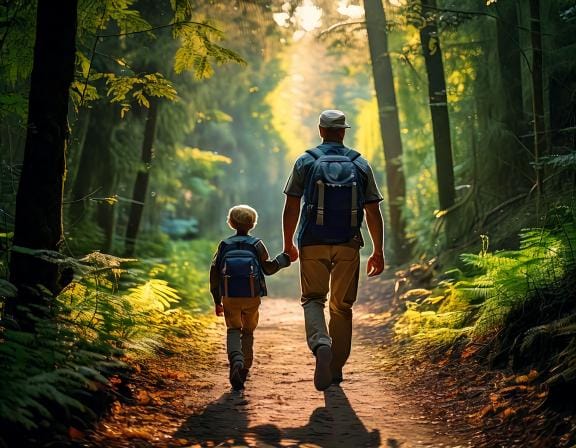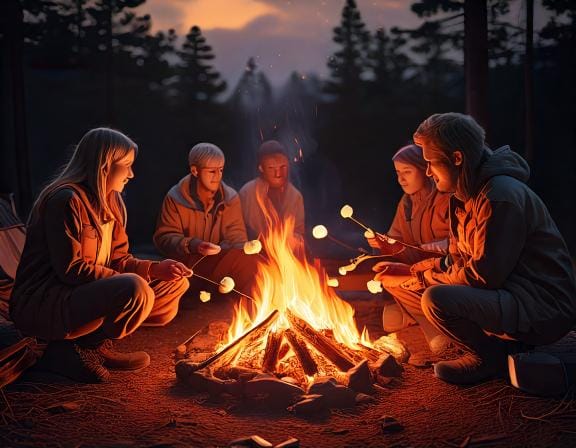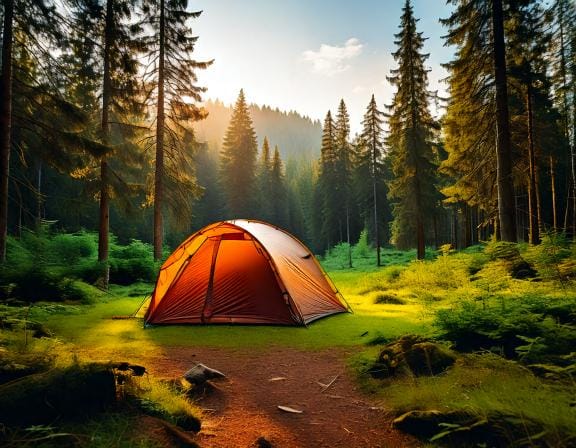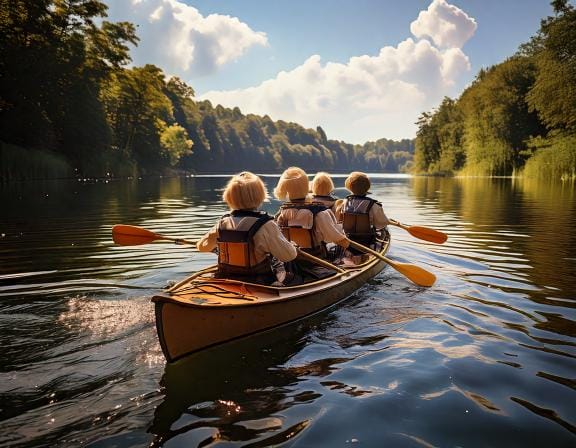
The Unexpected Benefits of Joining Scouts: A Parent’s Perspective.
Finding Community and Growth Through Scouting
As a separated parent with primary care, I was finding it difficult to juggle study, work, and organizing playdates for my son—I’m still pretty terrible at this, to be honest. I wanted him to engage in an extracurricular activity that would help him connect with others his age outside of school, build independence, and have other role models. It was suggested the benefits of joining scouts would align with what I was after, while also teaching life skills. So we attended a few nights to see what it was like, and he loved it.
Now, scouting is very much run by volunteers at the group level, so there were a few times I stuck around to help out when needed. This led to conversations about becoming a leader myself. I was very hesitant—I had been a scout for less than a year when I was younger, had been camping fewer times than I had fingers, and knew little about knots. Why would they think I could be a good leader? But I agreed to do the training to be an adult helper and consider becoming a leader along the way. My son was the one to invest me with a scarf—making his night.
Building Resilience, Skills, and Friendships
My son joined scouts as a Joey (5–7 years), where he learned a lot of the basics of scouting—compass points, what to bring in a day pack, why it is important to look after the environment, and a whole host of other things not necessarily related to scouting. He made some friends in the section and learned to be resilient when things weren’t quite going to plan, which he is still building on now that he has moved into the Cubs section (8–10 years). I expect by the time he makes it to the Scouts section (11–13 years), he will be ready for some of the multi-night camps and hikes they get into.
While no stranger to sleepovers with cousins, my son attended a Joeys sleepover, which he thought was amazing, and not long after, a district camp with Joeys from all over the region. This one was more challenging for him, but he was so happy when he got through it and excitedly told me about every activity he did—the highlight was archery.
His first badge was a great achievement, and I came to realize it was because he often saw children receive awards at school but had never received one himself. With the badges, he has a goal to work towards, and he set a goal of achieving the top award in Joeys. He needed some encouragement with the special interest badges and reflection activities—but he got it. Now, he has set a new goal of achieving the top award in Cubs—the Grey Wolf Award.
Since joining Cubs, his knowledge has grown even more, probably because we have greater expectations for them. Part of the scouting method is reducing the level of leader involvement as the scout gets older. In Joeys, the leader does almost everything, directing them so they can learn. In Cubs, we involve them in the planning and have them take on more responsibilities with less assistance.
This has led to skills in setting up a tent, meal planning, campsite organization, fire-making (safely), cooking, first aid, and more advanced navigation skills. He has learned some knots and used them to build a basic shelter, developed paddling skills in a canoe, gained bike maintenance and riding skills, and even tackled rock climbing—though he refuses to abseil!
So many benefits from these activities also encourage him to be outside and active more.
Rediscovering Adventure and Connection as a Leader
I already said I thought I wouldn’t be suitable as a leader since I didn’t have the skills, right? Well, it turns out one of the benefits of joining scouts as a volunteer leader was learning these skills alongside the scouts. Initially, I wanted to be in a different section than my son to ensure he was getting that independence away from me. But trying to plan scout events around when he was in my care or with his mother was too difficult. After he moved into the Cubs section, I was able to make a move to join him. It has worked out well—rarely does he shadow me, and he knows I will ignore any questions that require “Dad” to answer.
Learning these skills as a volunteer leader has given me the confidence to take my son camping by ourselves—something I was hesitant to do previously. I hadn’t camped much as a child, only once or twice with friends in my 20s, and not since, so there was a lack of confidence. We have been out a few times now, and he loves getting out to explore with me. This has led to stronger bonds between us, lessons about how we each handle emotions when stressed, and excitement when planning trips. I certainly feel proud when I see how far he has come, and being a leader gives me an additional opportunity to model behaviors and emotional regulation with him.
Why Every Family Should Consider Scouting
The benefits of joining scouts go beyond adventure—it helps children grow, learn essential life skills, and gain confidence. It encourages them to be active, resilient, and independent while exposing them to new challenges that build confidence. Beyond that, it provides a much-needed break from digital screens, giving them hands-on experiences that strengthen emotional regulation and problem-solving skills. Seeing their pride in earning badges, completing activities, and working as a team is incredibly rewarding.
Bring your child along for a few trial nights and see if they enjoy it. It could open doors to lifelong friendships, confidence, and adventures.
But scouting isn’t just for kids. Behind every great scout group are dedicated volunteer leaders who guide and inspire young people. With just a few hours a week, you can make a meaningful impact—building confidence in children, learning new skills, and strengthening your bond with your child. Plus, you’ll meet like-minded people and contribute to your local community in a fulfilling way.
What’s stopping you from getting involved? Take the first step today and see how scouting could change your life and your child’s. Follow the links to find the contact for your local group.


